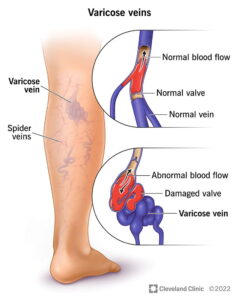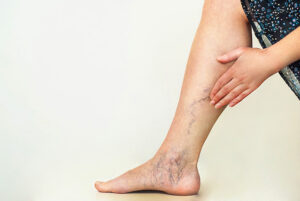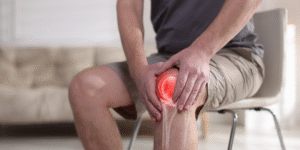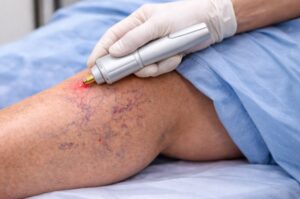Varicose veins, those enlarged, swollen, and often painful veins that appear on the legs, are a common vascular condition affecting millions of people worldwide. Left untreated, they can lead to more serious health issues, including leg swelling, skin changes, and even venous ulcers. Choosing the right vein specialist is crucial for effective treatment and long-term relief. This guide will help you navigate the process of selecting a vein specialist to treat varicose veins, ensuring you receive the best care possible.
Understanding Varicose Veins

Varicose veins develop when the valves in the veins, which help blood flow toward the heart, become weak or damaged. This causes blood to pool in the veins, leading to their characteristic bulging appearance. Factors such as genetics, age, pregnancy, prolonged standing, and obesity can increase the risk of developing varicose veins. Symptoms can range from mild discomfort to significant pain, itching, and skin changes.
Why Choose a Vein Specialist?
While general practitioners can provide initial advice and treatments for varicose veins, a vein specialist offers advanced care tailored to vascular conditions. Vein specialists are proceduralists who have extensive training in diagnosing and treating vein disorders. They can offer a range of minimally invasive treatments, ensuring you receive the most effective and least invasive option for your condition.
Choosing a Vein Specialist
Experience and Expertise
Experience is a critical factor in choosing a vein specialist. Ask potential doctors about their experience in treating varicose veins and other venous conditions. How many procedures have they performed? What is their success rate? An experienced specialist is more likely to accurately diagnose your condition and recommend the most appropriate treatment.
Treatment Options
Modern vein treatments are minimally invasive and offer quick recovery times. A reputable vein specialist should offer a variety of treatment options, including:
- Endovenous Laser Therapy (EVLT): Uses laser energy to close off the affected vein.
- Radiofrequency Ablation (RFA): Uses radiofrequency energy to heat and close the vein.
- Sclerotherapy: Involves injecting a solution into the vein to collapse it.
- VenaSeal: Uses a medical adhesive to close the vein.
- Ambulatory Phlebectomy: A surgical procedure to remove the vein through small incisions.
Discuss the pros and cons of each treatment with your specialist to determine the best option for your condition.
Patient Reviews and Testimonials
Patient reviews and testimonials can provide valuable insights into a specialist’s reputation and patient satisfaction. Look for reviews on independent websites, healthcare forums, and social media. Positive reviews and high ratings are good indicators of a specialist’s competence and patient care. However, be cautious of a few negative reviews; instead, look for overall patterns in patient feedback.
Consultation and Communication
A good vein specialist should offer an initial consultation to assess your condition and discuss potential treatments. During this consultation, evaluate their communication skills. Are they listening to your concerns? Do they explain the diagnosis and treatment options clearly? Effective communication is crucial for a successful doctor-patient relationship and ensures you feel comfortable and informed throughout the treatment process.
Follow-Up Care
Effective treatment of varicose veins often requires follow-up care to monitor the condition and ensure successful results. Ask the specialist about their follow-up care protocol. How often will you need to return for check-ups? What should you expect during the recovery process? Comprehensive follow-up care is essential for maintaining long-term vein health.
Conclusion
Choosing the right vein specialist is a critical step in managing and treating varicose veins. By considering qualifications, experience, treatment options, patient reviews, communication, office environment, costs, and follow-up care, you can find a specialist who will provide the highest standard of care. Addressing varicose veins promptly with the help of a skilled specialist can significantly improve your quality of life, alleviate discomfort, and prevent further complications.
Finding the Perfect Vein Doctor Near Me Improve Your Vein Health: Exercise and Treatment Options, Is Vein Ablation Right for Me?







